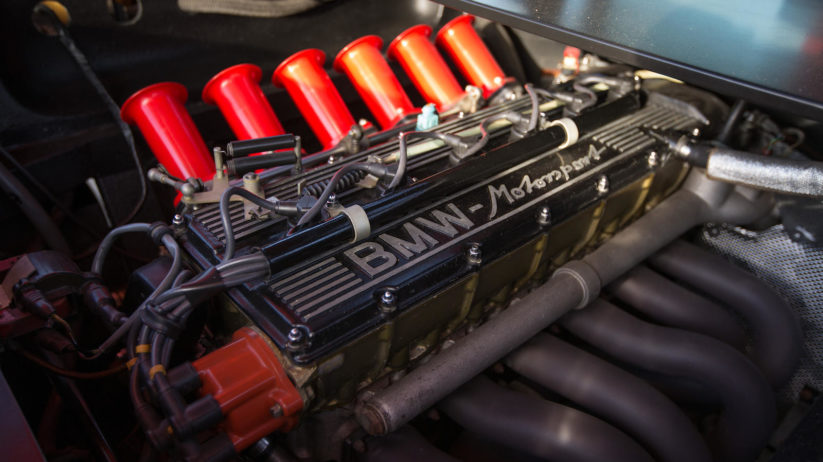The Evolution of the BMW Engine: A Look Back at Iconic Models
The Evolution of the BMW Engine: A Look Back at Iconic Models
Blog Article
Unveiling the Intricacies of Next-Generation Power Units: a Deep Dive Into Advanced Engine Developments and designs
As we stand on the precipice of a brand-new era in transportation, the complexities of next-generation engine layouts beckon us to check out the innovative modern technologies and technologies that guarantee to redefine the driving experience. Diving much deeper right into the worlds of exhaust control, intelligent engine management systems, and the perspective of power unit growth, we discover ourselves on the cusp of an improvement that guarantees to reshape the landscape of flexibility as we understand it.
Development of Engine Materials

The shift in the direction of progressed engine products has actually likewise made it possible for engineers to design engines with greater power results while keeping fuel efficiency standards. The use of lightweight products reduces the overall weight of the engine, leading to improved fuel economic situation and reduced emissions. In addition, advancements in materials innovation have permitted far better thermal management within engines, leading to raised reliability and long life.
Turbocharging and Supercharging Technologies
Just How do Turbocharging and Supercharging Technologies transform engine efficiency and efficiency in contemporary vehicles? Supercharging and turbocharging are innovations that substantially enhance engine efficiency by boosting the amount of air consumption into the combustion chamber. Turbocharging accomplishes this by using a turbine driven by exhaust gases to pressurize the consumption air, while supercharging makes use of a belt- or chain-driven compressor to achieve the exact same result.
These modern technologies make it possible for smaller sized, extra fuel-efficient engines to generate power equal to bigger ones, called downsizing. Forcibly even more air into the cylinders, turbo charging and turbocharging boost burning efficiency, resulting in boosted horsepower and torque output without a substantial rise in engine dimension. This leads to better velocity, hauling ability, and general driving efficiency.
In addition, turbocharging and supercharging add to boosted fuel effectiveness by allowing the usage of smaller sized engines that take in much less fuel under regular driving problems - bmw engine. This mix of boosted performance and effectiveness has actually made turbocharging and turbo charging important elements of numerous modern-day engine designs
Exhaust Control and Environmental Effect
With enhancing worldwide concerns pertaining to air quality and ecological sustainability, the execution of emission control technologies in vehicles plays a vital duty in reducing hazardous contaminants released right into the ambience. Modern automobiles are geared up with advanced emission control systems that help reduce the ecological influence of automotive operations. Catalytic converters, for instance, are designed to transform toxic gases such as carbon monoxide, nitrogen oxides, and hydrocarbons right into less hazardous materials like co2 and water vapor.
In addition, advancements in engine innovation, such as the combination of exhaust gas recirculation systems and discerning catalytic decrease, have substantially added to decreasing exhausts. These modern technologies work in tandem to enhance combustion effectiveness and reduce the release of unsafe contaminants into the air. Furthermore, the advancement of hybrid and electric cars represents a crucial action towards minimizing the general ecological impact of the transport market.
Intelligent Engine Administration Systems

Furthermore, these systems allow vehicles to fulfill rigid discharges standards without endangering efficiency, giving an extra eco-friendly driving experience. The combination of artificial knowledge and device understanding capabilities in engine administration systems remains to press the borders of what is possible, leading to further enhancements in efficiency, reliability, and general lorry performance. bmw engine. As automotive technology developments, smart engine management systems will certainly play a critical role fit the future of transportation towards a much more effective and lasting instructions
Future Trends in Power Unit Development
As intelligent engine monitoring systems lead the means for boosted control and optimization in modern-day cars, future fads in power device growth are go positioned to redefine the landscape of auto propulsion modern technologies. These different power resources use enhanced efficiency and efficiency while straightening with rigorous environmental laws.
One more substantial fad is the assimilation of advanced materials and manufacturing techniques. Light-weight materials such as carbon fiber and aluminum are being made use of to lower general vehicle weight, improving gas efficiency and performance. Furthermore, improvements in 3D printing and additive production are enabling the manufacturing of complex engine elements with greater accuracy and longevity.
Moreover, fabricated knowledge and artificial intelligence are playing a critical function in enhancing power system efficiency. These modern technologies enable real-time tracking and adaptive control, bring about extra reliable and reputable power delivery. In general, future trends in power system development are geared towards efficiency, effectiveness, and sustainability, driving the automobile market towards a new period of propulsion innovations.

Verdict
In verdict, the improvements in engine products, turbocharging, discharge control, and intelligent administration systems have paved the method for next-generation power systems. The detailed styles and advancements in modern-day engines showcase the ongoing evolution of auto technology.
Discovering the modern innovations in engine materials has actually been pivotal in boosting the performance and effectiveness of modern engines. Over the years, the development of engine materials has played an important role in pressing the boundaries of what engines can achieve.The shift towards advanced engine products has actually also enabled designers to create engines with greater power results while maintaining gas performance requirements.The execution of smart engine management systems in modern vehicles has actually transformed the way engines are regulated and enhanced for performance and efficiency. By gathering information in real-time and analyzing it with innovative algorithms, intelligent engine management systems can adjust to driving designs, ecological factors, and engine health anonymous and wellness to make best use of power result while decreasing gas usage and discharges.
Report this page